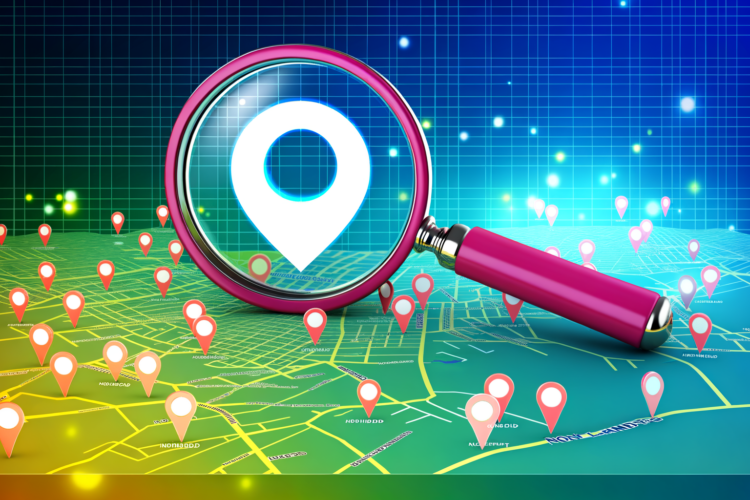
Local SEO is an effective strategy for smaller businesses to compete against larger brands by improving their visibility within their local community. By optimizing for local search queries, maintaining accurate local business listings, and building a strong online reputation, businesses can attract local customers who are ready to convert. Now, let’s explore this strategy in depth.
Understanding Local SEO
Local SEO refers to the process of optimizing a business’s online presence to attract more business from relevant local searches. These searches take place on Google and other search engines, which means that maintaining a strong local SEO strategy can yield substantial benefits in terms of online and physical traffic. But how can you use this to take on the big players in your industry?
How Local SEO Works
Search engines like Google use a user’s location to deliver search results that are most relevant to where they are. If someone searches for “best coffee shop,” Google will provide results that are close to their current location. By optimizing your online presence for these local searches, you can ensure that your business appears prominently when customers are looking for products or services you offer.
Optimizing Your Website for Local Search
Localized Content and Keywords
One of the first steps in harnessing the power of local SEO is to optimize your website content for local keywords. For example, if you are a dentist in Austin, Texas, you would want to include phrases like “dentist in Austin” or “Austin dental services” throughout your site. Localizing your content helps search engines understand where your business is located and the areas you serve.
On-Page Optimization Strategies
On-page SEO factors like title tags, meta descriptions, and headers should include local search terms. Not only does this help search engines crawl your site, but it also tells users right off the bat that you’re in their vicinity. Each page should be optimized for local search, including your contact page, which should feature your business name, address, and phone number (NAP).
Local Schema Markup
Schema markup is a code that you put on your website to help search engines provide more informative results for users. By implementing local Schema markup, you can help search engines provide more detailed information about your local business, such as the areas you serve, your operating hours, and even menus or services offered.
Claiming Your Google My Business Listing
Accuracy and Consistency of NAP
A Google My Business (GMB) listing is a must-have for local SEO. It’s important for your NAP information to be accurate and consistent not only on your GMB but across all online directories. This consistency helps Google trust the accuracy of your data, which can lead to better rankings in local search results.
Gathering and Responding to Reviews
Google My Business and other review sites like Yelp influence local SEO rankings. Encouraging satisfied customers to leave positive reviews and responding professionally to negative ones can improve your business’s local ranking and credibility.
Building Local Citations
What Are Local Citations?
Local citations are mentions of your business on the web, which could include your business name, address, phone number, and possibly a link to your website. Citations come from various platforms including local business directories, websites, and social platforms.
Quality Over Quantity
While the number of citations your business accrues can impact your Local SEO, the quality of those citations is far more significant. It’s critical to get listed on directories that are trusted and frequented by your audience.
Developing a Local Link Building Strategy
The Importance of Local Link Building
Inbound links from reputable local websites are a strong signal to search engines that your website is a credible and relevant resource within your community. Collaborating with local influencers, newspapers, or other businesses can not only get you valuable backlinks but also expose your brand to a wider local audience.
Collaborating with the Local Community
Getting involved in community events, sponsoring local sports teams, or engaging in local charities can result in your business being mentioned and linked to from various local websites and social media pages. Not only is this good for the community, but it’s also beneficial for your local SEO.
Creating a Strong Social Media Presence
Engage with Your Local Audience
Social media platforms offer a great way to connect with your local audience. By posting regularly on sites like Facebook, Twitter, and Instagram, and engaging with your followers, you will increase your local followership and build awareness for your brand.
Leveraging Local Hashtags
Using local hashtags can help people in your area discover your business on social media. Whether it’s a popular local event, landmark, or simply a city-specific hashtag, assimilating these into your posts can help you reach a more targeted audience.
Monitoring Your Local SEO Performance
Analyzing Your Progress
You can’t manage what you don’t measure. Use tools like Google Analytics, SEMrush, or Moz Local to keep track of your traffic, rankings, and the success of your local SEO efforts. This data will help you identify which strategies are working and which ones need improvement.
Adapting to Algorithm Updates
Search engine algorithms are constantly evolving. Staying on top of the latest updates and understanding how they affect local search results is crucial for maintaining and improving your local SEO strategy.
Finishing Thoughts
Competing with large brands might seem daunting, but local SEO levels the playing field. By focusing on the local aspects of SEO, such as optimized content, a strong GMB listing, building local citations and links, and engaging on social media, you can increase your visibility to the local audience who are the most likely to convert into customers. Remember to measure your results and adapt your strategy accordingly. With time and effort, your local business can stand out in search results, even amongst the industry giants.
Frequently Asked Questions
What is Local SEO?
Local SEO is a search engine optimization strategy that helps your business be more visible in local search results on Google and other search engines. Any business that has a physical location or serves a geographic area can benefit from local SEO.
How can local SEO help me compete with large brands?
Local SEO allows you to target potential customers in your immediate area, leveling the playing field between you and larger competitors. By focusing on your local search presence, you can attract more customers who are seeking services or products in your vicinity, where large brands may not have as strong a presence.
What are the key components of local SEO?
The key components of local SEO include creating and optimizing your Google My Business listing, collecting and managing online reviews, using local keywords in your website content, and building local backlinks.
How important is Google My Business for Local SEO?
Google My Business (GMB) is crucial for Local SEO as it directly affects your presence in local search results and Google Maps. A well-optimized GMB profile can increase your chances of appearing in the top local search results, also known as the “Local Pack.”
What are local keywords and how do I use them?
Local keywords are search phrases that include location-specific terms such as the name of your city or neighborhood. They signal to search engines that your content is relevant to a specific geographic area. Use these keywords in your website content, meta tags, and URLs where relevant and natural.
How do I get online reviews and why are they important?
Encourage satisfied customers to leave reviews on your GMB listing and other review platforms like Yelp or TripAdvisor. Online reviews contribute to your business’s credibility and influence your local search ranking. Respond to all reviews, both positive and negative, to show that you value customer feedback.
What role does local content play in local SEO?
Crafting content specific to your local audience, such as blog posts about local events or guides relevant to your area, can improve your search visibility to a community interested in your business. It also positions you as a local authority in your industry.
Why are local backlinks important and how can I acquire them?
Local backlinks from reputable and relevant sources signal to search engines that your business is an integral part of the community. Acquire them by networking with other local businesses, participating in community events, or creating share-worthy content that local organizations might link to.
Can social media impact my local SEO performance?
While social media doesn’t directly impact search rankings, it can influence Local SEO indirectly. Active social media profiles can drive local traffic to your website, increase brand awareness, and contribute to a strong online presence, which can positively affect your local search visibility.
How can I track my local SEO performance?
Track your local SEO performance using tools like Google Analytics to monitor website traffic, Google Search Console for search queries and site visibility, and GMB insights to analyze how customers interact with your listing. Focus on metrics like local search ranking, website visits from local searches, and the number of actions taken on your GMB listing (such as calls or direction requests).
What are the first steps to improve my Local SEO?
To improve your Local SEO, claim and verify your Google My Business listing, ensure NAP (name, address, phone number) consistency across online directories, gather customer reviews and respond to them, and start incorporating local keywords into your website’s content and meta tags.






